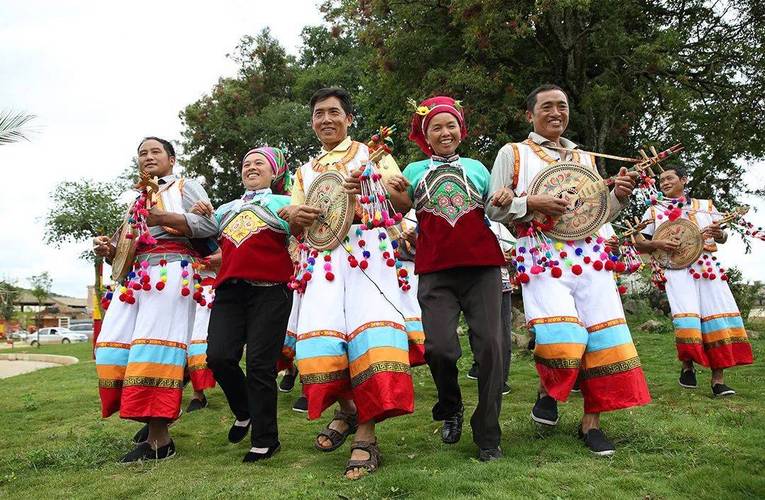
Xiaowan Town Overview
Xiaowan Town overview is a relatively comprehensive introduction of Xiaowan Town. In this part, you will have a general understanding of Xiaowan Town of Fengqing County.
Basic Information
• Full Name: Xiaowan Town
• Chinese Name: 小湾镇
• Keywords: Ancient Tea Trees and Xiaowan Hydropower Station
• Location: Fengqing County, Lincang City, Yunnan Province, China
• Area: 204 square kilometers
• Population: 27156
• Zip Code: 675909
• Area Code: 0873
Geographical location
Xiaowan Town is located in the east of the county seat, along the southern bank of the Lancang River. It spans 24°32"- 24°44" north latitude, 98°58"- 100°09" east longitude, 64 kilometers from the county seat. It faces Yaojie Yi Ethnic Town(腰街彝族乡) across Luoxing River(落星河) in the north; Borders Luodang Yi Ethnic Town(洛党彝族镇) in the south; Connects Fengshan Town(凤山镇) and Dasi Township(大寺乡) in the west; And separated from Xinhua Yi and Miao Ethnic Town(新华彝族苗族乡) and Nanjian County(南涧县) by Lancang River. The total area is 204 square kilometers.
Climate
Xiaowan Town enjoys subtropical monsoon climate, due to the influence of topography and landforms, with obvious three-dimensional climate. In summer, there is much more rainfall in Xiaowan Town than in winter. In winter, the temperature difference is large between daytime and night. Three-dimensional weather conditions gave birth to the complex and diverse ecological environment and vegetation types of Xiaowan.
The Best Time to Visit Xiaowan Town
Due to the warm and temperature weather all the year round, you can travel Xiaowan Town at any seasons. During summer time, Xiaowan Town is rainy, coupled with Xiaowan is mainly mountainous area, it is prone to natural disaster, pay attention to your safety when driving and hiking. During winter time, sunshine is abundant because of less rain, and the temperature varies greatly from daytime and night. You are supposed to bring sun cream, hat or other sunscreen products for the daytime, and bring warm coat to keep warm at nights.
Administrative Divisions
Xiaowan Town has jurisdiction over 12 villages, including Xiaowan Village(小湾村), Juecai Village(蕨菜村), Qingzhong Village(箐中村), Zhengyi Village(正义村), Wenquan Village(温泉村), Guihua Village(桂花村), Jinxiu Villge(锦秀村), Huafeng Village(华峰村), Sanshui Village(三水村), Meizhu Village(梅竹村), Chunguang Village(春光村) and Majie Village(马街村).
Ethnic Groups
Xiaowan is an ethnic minority town with a multi-ethnic population living together. There are eight ethnic minorities including Yi, Bai, Miao, Lisu, Hui, Dai, Wa, Lahu, among them Yi minority has the largest population.
Things to Do
The most famous attraction in Xiaowan Town is the ancient tea tree in Xiangzhuqing of Jinxiu Village. There is a ancient tea tree for more than 3200 years, known as "the ancestor of tea tree" and "the king of tea", which has attracted many experts and scholars to visit and investigate. In addition to ancient tea trees, other attractions in Xiaowan include Xiaowan Hydropower Station, Huangcaoba Reservoir(黄草坝水库), Ganshaba Reservoir(干沙坝水库), Fanxinhe Reservoir(翻新河水库) and Qinglong Bridge(青龙桥), etc.
Transportation
There are no railway station and airport in Xiaowan. Airport in Fengqing is under construction. You can take long-distance bus from Kunming to Fengqing, and then take regular bus or chartered bus from Fengqing to Xiaowan. There are few asphalt roads connecting the county seat of Fengqing and Xiaowan, but the transportation there is much better than before. Don't worry about the traffic jam, it seldom happens. Xiaowan is a small town, there are not too many people and cars.
Accommodation
Xiaowan is a small town, all aspects remain to be developed. Therefore, for accommodation, you are suggested to go back to the county seat of Fengqing for overnight, since accommodation conditions in Fengqing are better than Xiaowan. Or you can go to Nanjian County where is also not far from Xiaowan and is close to Dali City.
History
Xiaowan Town, formerly known as Majie Yi Ethnic Town(马街彝族乡), got the name because the township government was in Majie. Majie was a market place in mountainous area, people used to go to market on the day of the Mouse and the day of the Horse(Ma in Chinese Pingyin), hence the name. In 1949, Xiaowan was a part of Xinming Township(新明乡) and Guanghua Township(光华乡). In September 1958, it belonged to Shangyou Commune of Dongfeng Township(东凤乡上游公社). In August 1959, it was called Majie commune(马街公社) and Majie District(马街区) in June 1961. In January 1968, it was called Chunjiang District(春江区) and changed into Chunjiang Commune(春江公社) in May 1969. Later, it was changed into Majie Commune in July 1971 and Majie District in 1984 again. In 1988, Majie Yi Ethnic Town was established. Yunnan Provincial people's Government approved the construction of Xiaowan Town in November 1993. Until today, Xiaowan has jurisdiction over 12 administrative villages. In April 2003, the township government moved from Majie to Panxiang of Xiaowan Village(小湾村畔香).

 7 Days GolfingTour
7 Days GolfingTour
 8 Days Group Tour
8 Days Group Tour
 8 Days Yunnan Tour
8 Days Yunnan Tour
 7 Days Shangri La Hiking
7 Days Shangri La Hiking
 11 Days Yunnan Tour
11 Days Yunnan Tour
 6 Days Yuanyang Terraces
6 Days Yuanyang Terraces
 11 Days Yunnan Tour
11 Days Yunnan Tour
 8 Days South Yunnan
8 Days South Yunnan
 7 Days Tea Tour
7 Days Tea Tour
 8 Days Muslim Tour
8 Days Muslim Tour
 12 Days Self-Driving
12 Days Self-Driving
 4 Days Haba Climbing
4 Days Haba Climbing
 Tiger Leaping Gorge
Tiger Leaping Gorge
 Stone Forest
Stone Forest
 Yunnan-Tibet
Yunnan-Tibet
 Hani Rice Terraces
Hani Rice Terraces
 Kunming
Kunming
 Lijiang
Lijiang
 Shangri-la
Shangri-la
 Dali
Dali
 XishuangBanna
XishuangBanna
 Honghe
Honghe
 Kunming
Kunming
 Lijiang
Lijiang
 Shangri-la
Shangri-la
 Yuanyang Rice Terraces
Yuanyang Rice Terraces
 Nujiang
Nujiang
 XishuangBanna
XishuangBanna
 Spring City Golf
Spring City Golf
 Snow Mountain Golf
Snow Mountain Golf
 Stone Mountain Golf
Stone Mountain Golf




